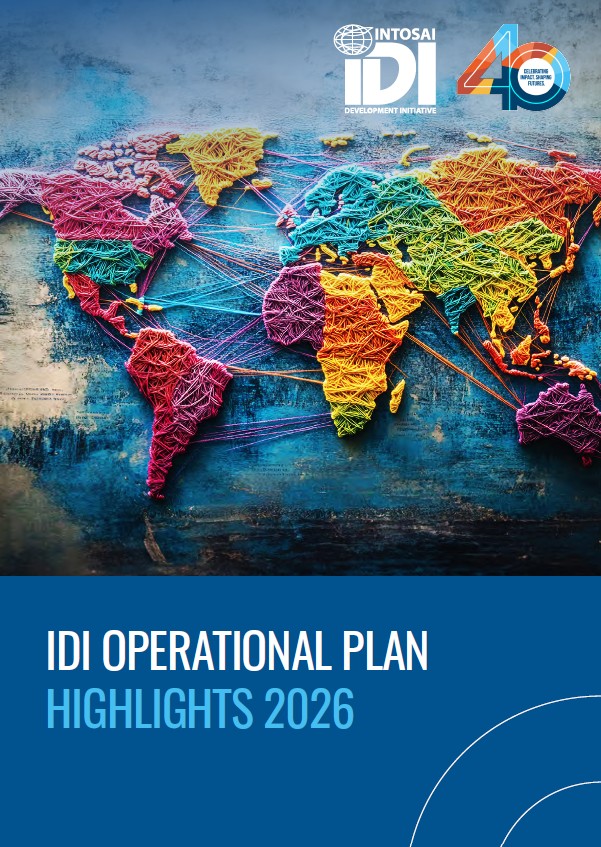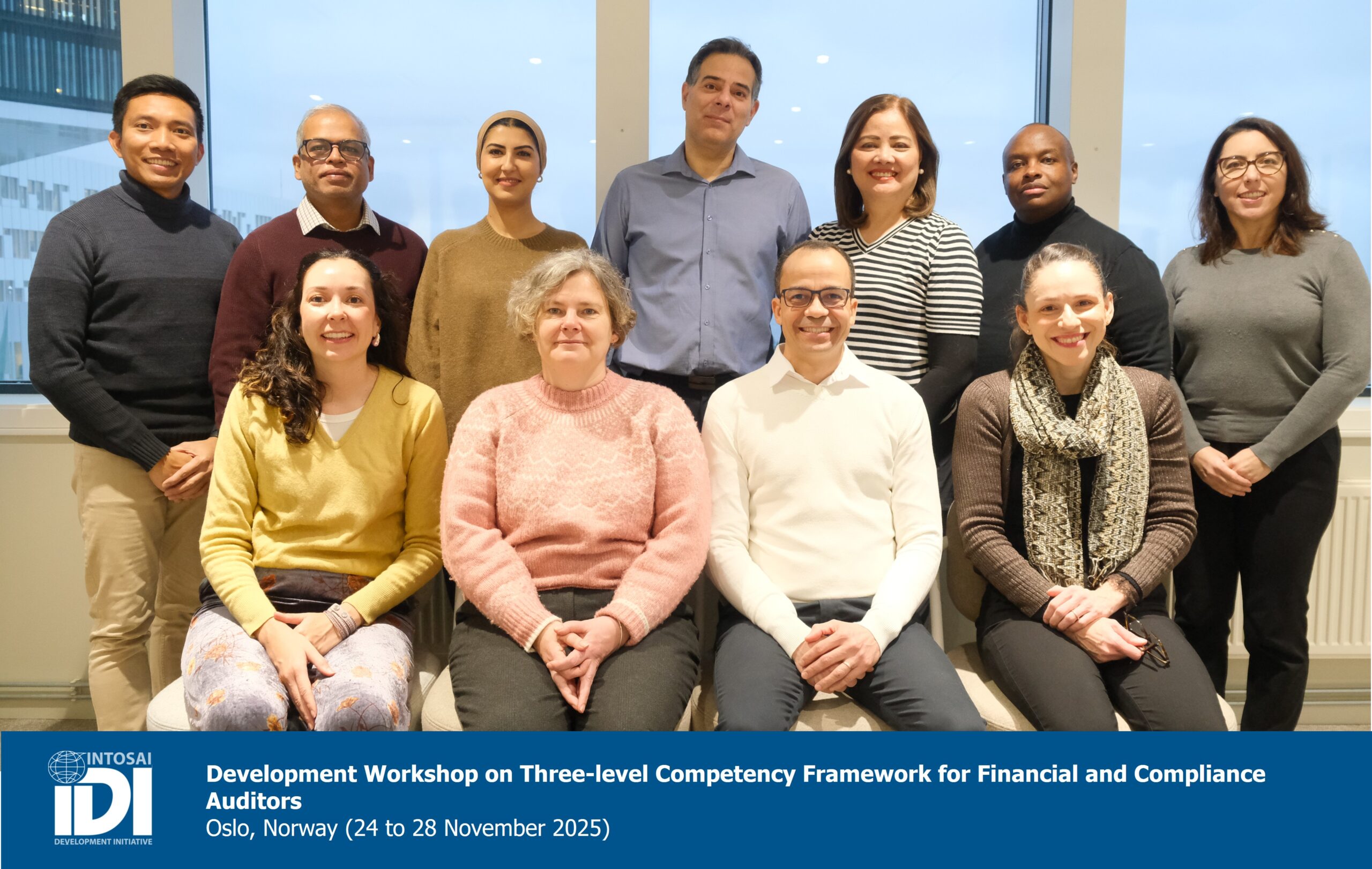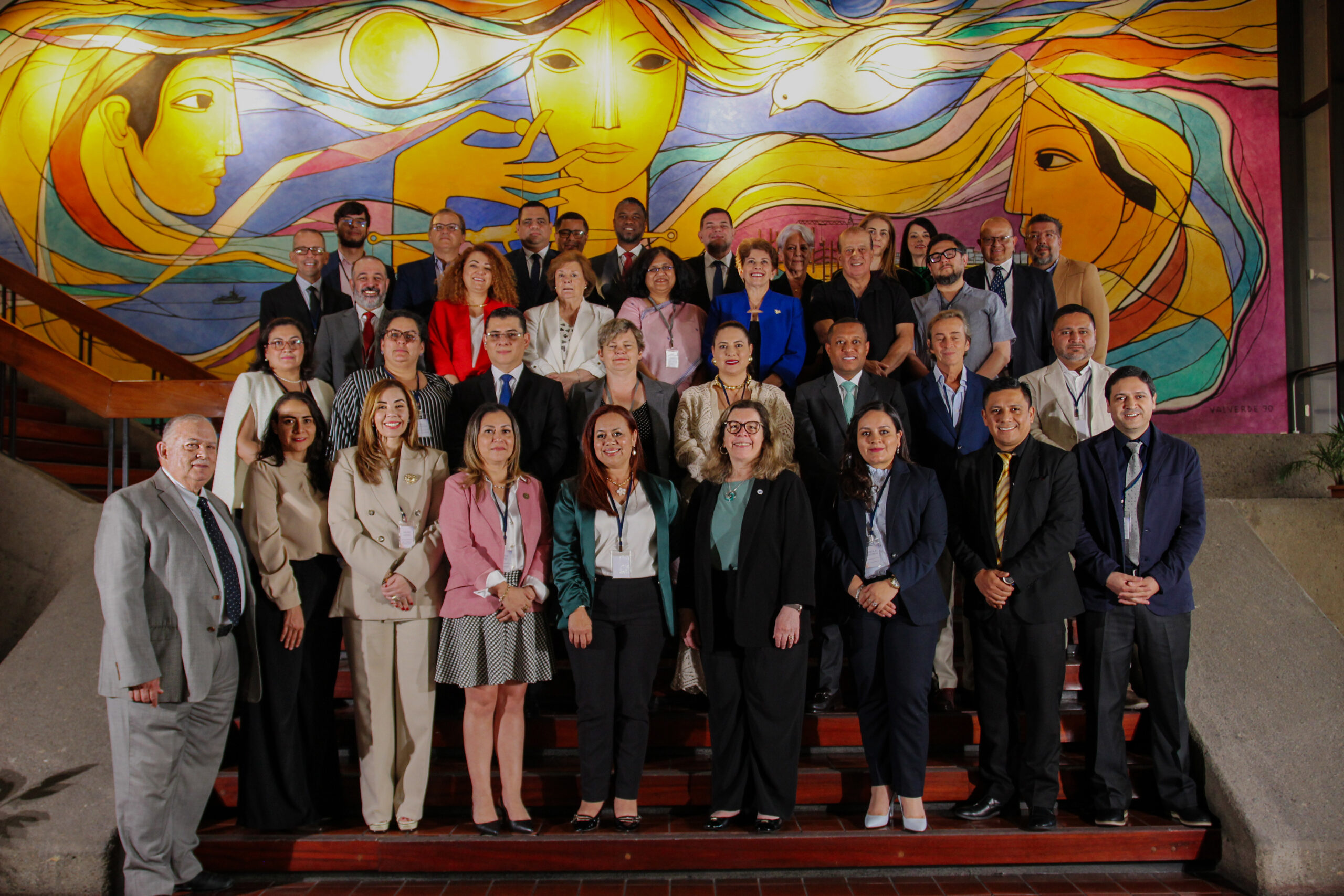On March 11–12, 2025, San José, Costa Rica, became the focal point for 40 leaders and representatives from 14 Supreme Audit Institutions (SAIs) from Latin America, the Caribbean and Spain, along with key stakeholders, as they gathered for the High-Level Dialogue on Professionalissation for SAI Leadership and Key Stakeholders in OLACEFS. Hosted by SAI Costa Rica and organised by the INTOSAI Development Initiative (IDI), this event was a landmark moment in the ongoing journey toward enhancing the professionalism of SAIs and their auditors. Together, they embarked on a path to redefine excellence in public sector auditing, sharing insights and forging connections that will shape the future of their institutions.
The focus on auditor competence throughout the event is a reflection of ISSAI (INTOSAI Standard for Supreme Audit Institutions) 150, which requires SAIs to establish fit-for-purpose organisational mechanisms for auditor competence. ISSAI 150 provides a framework for managing auditor competence, aligning with ISSAIs for compliance, financial and performance audit. More importantly, the discussions on the thematic areas of professionalisation, audit impact and quality management emphasised the final goal of SAIs making a difference by contributing to value and benefits as visualised in INTOSAI P 12.
Developing Competent Auditors through PESA
Participants kicked off the discussions by focusing on how to enhance the competencies of SAI auditors. SAI heads and stakeholders shared their insights on pathways for professional development and qualification systems. PESA emerged as a unique professional qualification that strengthens the credibility of SAIs and nurtures a highly skilled workforce.
PESA is designed to align with the INTOSAI Competency framework for SAI Auditors (now part of GUID 1950), ensuring auditors have essential competencies such as:
- Technical expertise
- Ethical integrity
- Analytical skills
- Independence
- Effective stakeholder engagement
- Curiosity and adaptability in a dynamic world
SAI leaders, coaches, and PESA graduates shared firsthand experiences on PESA’s impact.
“PESA is not a diploma, but a structural vision aligned with international standards.”
– Jetro Coutinho, PESA Graduate from SAI Brazil
SAIs have actively implemented initiatives to develop auditor competencies, including initial training programmes, continuous development strategies, and partnerships with institutions such as the World Bank to enhance funding. The OLACEFS Capacity Building Committee has actively advocated for PESA, recognising it as a unique professional qualification. Understanding the ongoing demand for various types of audit training in the region, promoting PESA was a natural choice. This initiative not only addresses the needs of Supreme Audit Institutions (SAIs) in the region but also aligns with their mission to develop professional capacities within these institutions.
Strengthening Sustainable Audit Practices
Professional auditors thrive in professional audit environments. Building on the success of the IDI-Asian Development Bank initiatives in the Asia Pacific for performance and financial audit, OLACEFS SAIs discussed actions taken to enhance sustainable audit practices in financial, performance, and compliance audits.
Key lessons and strategies included:
- Proactive efforts to secure audit mandates
- Agreements with international organisations
- Continuous communication with audited entities
- Integrating findings across different audit types
- Implementing risk-based approaches
- Maintaining a manageable audit scope
- Leveraging artificial intelligence in auditing
Competent SAI auditors contribute significantly to sustainable audit practices. One of the key tools SAIs have used for developing competent auditors is PESA.
“The SAIs are very important in the achievement of the World Bank’s goals, which are the reduction of extreme poverty and the promotion of shared prosperity on a livable planet”
– Mr. Joseph Mubiro Kizito, Banco Mundial
Impact Measurement to Demonstrate Public Audit Value:
SAI leaders and experts explored the “Circle of Public Audit Value,” which includes three dimensions:
1. Demonstrating Audit Impact – Demonstrating the positive effects that SAIs have on people and planet, especially those left behind.
2. SAI Reputation – The public profile of the SAI. The reputation of an SAI as a professional, credible, accountable, effective and inclusive public institution.
3. Public Trust in SAIs – Enhancing the trust that the SAI enjoys as a public institution in the local context.
Enhancing Public Trust and Stakeholder Engagement
SAI leaders and stakeholders from Civil Society Organisations (CSOs) discussed how they could enhance collaboration and work together to maximise the value of public audits. To achieve this, SAIs could:
- Publish clear and accessible audit reports
- Select audit topics of high public relevance
- Engage with Civil Society Organisations (CSOs) and citizens
- Improve communication strategies to reach broader audiences
A key takeaway was the need for SAIs to proactively engage with stakeholders, ensuring that audit findings are utilised effectively and recommendations followed through.
Measuring and Communicating Audit Impact
Participating SAIs shared various actions that they have taken to facilitate and measure audit impact. These included:
- Clear, concise, and actionable recommendations
- Robust follow-up mechanisms
- Concise and Understandable audit reports
- Stakeholder engagement throughout the audit process
- A structured measurement model to track different types of impact (financial, institutional, and public trust)
“We have also seen an improvement in their awareness of the purpose of audits and towards the desire to carry out audits that transform the lives of citizens“
– Comptroller General of the Republic of Costa Rica
“We are redefining and implementing the ISSAI regulations in our framework so PESA is ideal where our auditors will now have international validation that will allow us to reach society with reports that will be accepted with greater credibility.”
– Ms. Itzel Palacios, SAI of Honduras
Setting Up Systems of Audit Quality Management
The dialogue concluded with discussions on the revised ISSAI 140, which emphasises risk-based, dynamic systems for audit quality management. Recognising the importance of IDIs support for Systems of Audit Quality Management, 14 SAIs signed Statements of Commitment for participating in IDI’s initiative supporting them in setting up systems of audit quality management.
Conclusion
The High-Level Dialogue on Professionalisation in OLACEFS reinforced the critical role of competency development, sustainable audit practices, and quality management in SAIs, demonstrating public audit value.
We look forward to working in partnership with OLACEFS and other stakeholders in the region to support SAIs in enhancing professionalisation and growing professional SAI auditors.
A special thanks to SAI Costa Rica for hosting and all the participants who contributed to these insightful discussions!


